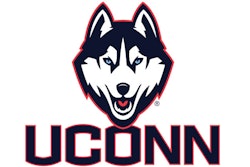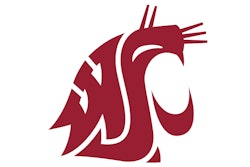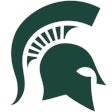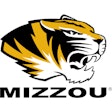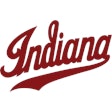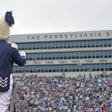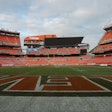Copyright 2018 Independent Publishing Company
All Rights Reserved
Anderson Independent-Mail (South Carolina)
According to figures compiled by USA TODAY Sports, South Carolina reported $31.6 million in rights and licensing revenue in 2014. That figure increased to $41.1 million in 2015 and $56.2 million last year.
What is Williams-Brice? It is not field nor stands, nor lights, nor scoreboards, nor any other part. What is in a name? That which we call a stadium by any other name would still sound as loud.
The University of South Carolina would need more than a poignant plea from Juliet to renounce the name its football stadium has held since 1972. But amending a renowned name with another hyphen is not too farfetched.
Typically, college football stadiums are named as:
Tributes to esteemed groups, like Memorial Stadium at Clemson, Nebraska, Illinois and Indiana
Honors for revered individuals, like Sanford at Georgia, Dodd at Georgia Tech and Doak Campbell at Florida State
Designations of the home state or mascot, like Michigan Stadium and Sun Devil Stadium
Tokens of gratitude to benefactors, like Williams-Brice, Florida's Ben Hill Griffin or Oklahoma State's T. Boone Pickens
However, many Division I schools have abandoned the conventional nomenclature. They have answered Juliet's inquiry and found exactly what is in a name.
Revenue.
In April, Colorado State granted its stadium naming rights to Canvas Credit Union in a 15-year, $37.7-million deal. That was added to the $20-million agreement Colorado State secured in 2016 to rename its playing field. Thus, the venue is now officially Sonny Lubick Field at Canvas Stadium.
Washington brokered a 10-year, $41-million deal to rename is venue Alaska Airlines Field at Husky Stadium. Southern California procured a 15-year, $70-million agreement to rebrand the Los Angeles Coliseum as the United Airlines Memorial Coliseum.
Last year, South Carolina's Southeastern Conference compatriot Kentucky renamed its stadium Kroger Field. In 2007, Clemson's Atlantic Coast Conference colleague Wake Forest rebranded Groves Stadium as BB&T Field. Syracuse has played in the Carrier Dome since 1980.
Pittsburgh plays on Heinz Field. Miami plays in Hard Rock Stadium. But those two venues are shared with National Football League teams. The corporate naming rights model is standard procedure among professional franchises.
"In college, corporate partnership is still evolving," USC executive associate athletics director Jeff Crane said. "It's still a little bit outside the norm for many schools, although it's not for us.
I think at this point everything is on the table. If there's an opportunity to enhance our program through some financial resources, we would look at any and every option. We're actively pursuing partnerships like this on a daily basis."
There may not be an airline, bank or cable company affixed to Williams-Brice any time soon, but South Carolina has secured naming rights deals on two of its most prominent venues.
In 2002, USC completed construction on the Colonial Center to host men's and women's basketball, graduations, concerts and other events. The next year, USC sold the naming rights to the Colonial Life & Accident Insurance Company. USC extended its partnership for Colonial Life Arena in 2015 with a 10-year, $6.5-million contract.
In 2009, USC opened Carolina Stadium, an immaculate facility to house its national champion baseball program. In 2015, a 10-year, $7-million deal with Founders Federal Credit Union renamed the stadium Founders Park.
According to figures compiled by USA TODAY Sports, South Carolina reported $31.6 million in rights and licensing revenue in 2014. That figure increased to $41.1 million in 2015 and $56.2 million last year.
The partnerships with Colonial Life and Founders attribute approximately $1.3 million annually to that total. Founders vice president of marketing Nikki Nash asserted that the benefit is equally valuable for Carolina's corporate partners.
"It gives us more credibility in the market and increases our entire brand reputation in the area," Nash said. "They have so many people attending these games, it's really a captive audience."
Nash was pleasantly surprised with how quickly "Founders Park" was ratified into Gamecock vernacular.
"People were so used to calling it something else, I thought it would take a while for people to identify it as Founders Park," Nash said. "But it didn't take any time at all. The University of South Carolina and their network, they're so professional. They really didn't miss a beat."
Crane said, to facilitate enduring brand awareness, naming rights deals are typically at least 10 years long.
"They're a pretty significant investment on the university's part as well as the sponsor's part," Crane said. "From the sponsor's perspective, affiliation and association with the university is important. They want to get some real staying power."
Founders has smaller marketing partnerships with other schools in the state, including Clemson. The Founders logo appeared on the basketball court in Littlejohn Coliseum last season.
According to Clemson deputy athletic director Graham Neff, those marketing deals are negotiated through Clemson's multimedia rights and corporate sponsorship partner JMI Sports, the same company that brokered the Kentucky-Kroger deal.
However, none of Clemson's facilities are named after corporate sponsors. The indoor track complex is the only facility without an honorary name.
Yet, Crane contended that, considering the length of the agreements and the brand association, corporate partnerships should never be entered lightly. In July, the University of Louisville football stadium became a cautionary tale on naming rights deals.
John Schnatter, founder and owner of the Papa John's pizza chain, held the naming rights to Papa John's Cardinal Stadium until 2040. When Schnatter was embroiled in controversy over the use of a racial slur, Louisville sought to distance itself from its benefactor.
Players called for a stadium name change via social media on July 12. The Louisville board of trustees granted their request on July 13.
Louisville was lucky that Schnatter willingly relinquished his naming rights without legal action. The potential branding disaster illustrates the prudence of Crane's meticulous, careful process.
With the rising cost of competition, including perpetually upgrading facilities, nationwide recruiting travel and adjustments to the scholarship model, schools are coerced to dive headfirst into new revenue streams. But Crane warned programs not to hasten into murky water.
"When we form a partnership with a company or accept a gift from a donor, we absolutely have to take into account what's best for the university in all aspects," Crane said. "The donors and the companies involved understand that as well.
"Timing is important. We worked on naming the baseball stadium for a number of years before we found the right one. It's not easy to do. It has to be the right fit. It has to work on both sides."
According to figures compiled by USA
TODAY Sports, South Carolina reported $31.6 million in
rights and licensing
revenue in 2014. That figure increased to $41.1 million in 2015 and $56.2 million
last year.
Read More of Today's AB Headlines
Subscribe to Our Daily E-Newsletter
Terms and Conditions Privacy Policy

















